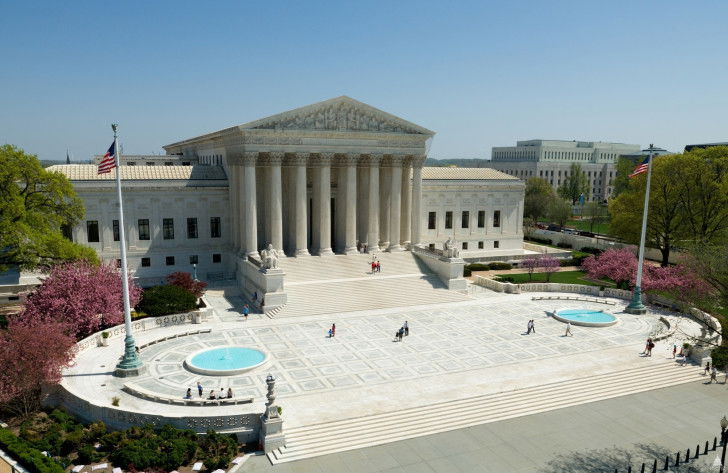America
US Supreme Court strikes down race-based affirmative action in college admissions

Washington, June 29
In a landmark judgment, the US Supreme Court on Thursday declared race-based affirmative action in college enrollment unconstitutional.
The court held affirmative action violative of the US Constitution’s 14th Amendment, which guarantees equal protection.
All six conservative justices, including Chief Justice John Roberts, ruled to strike down affirmative action, while the three liberals ruled against.
The court’s ruling came in a challenge to the race-based affirmative action by Harvard and University of North Carolina.
“The student must be treated based on his or her experiences as an individual—not on the basis of race,†Chief Justice Roberts wrote in the majority opinion.
“Many universities have for too long done just the opposite. And in doing so, they have concluded, wrongly, that the touchstone of an individual’s identity is not challenges bested, skills built, or lessons learned but the color of their skin. Our constitutional history does not tolerate that choice.â€
Roberts added that the court had previously “permitted race-based admissions only within the confines of narrow restrictions. University programs must comply with strict scrutiny, they may never use race as a stereotype or negative, and -- at some point -- they must endâ€.
Justice Sonia Sotomayor wrote in her dissent note for the minority decision that the ruling “rolls back decades of precedent and momentous progress. It holds that race can no longer be used in a limited way in college admissions to achieve such critical benefitsâ€.
“In so holding, the Court cements a superficial rule of colorblindness as a constitutional principle in an endemically segregated society,†she added.
But the court allowed for colleges to consider race in discussions in the admission process — an applicants can bring up race in their essays and applications forms as a factor in their life, as an impediment or an inspiration.
Roberts wrote that “nothing in this opinion should be construed as prohibiting universities from considering an applicant’s discussion of how race affected his or her life, be it through discrimination, inspiration, or otherwiseâ€.
While the ruling will end affirmative action based on race, universities would be able to switch to using socio-economic factors in the admission process, which could be based on the applicants’ family incomes or residential address.

7 hours ago
Trump softens stance on H-1B visa reform, says US needs to "bring this talent" as it can't rely on long-term unemployed

7 hours ago
India and Vietnam discuss ways to enhance defence, shipbuilding cooperation

7 hours ago
EAM Jaishankar holds talks with US Secretary of State Rubio in Canada

13 hours ago
TN CM Stalin congratulates Art director Thota Tharani for Chevalier Award

13 hours ago
Farah Khan takes a dig at friend Juhi Chawla on her birthday

13 hours ago
Krystle D’Souza opens up on her character’s growth in ‘First Copy 2’

13 hours ago
Florence Pugh suffered 6 months of depression after ‘Midsommar’

13 hours ago
Shilpa Shetty relives her ‘Baazigar’ memories with Shah Rukh Khan as film completes 32 years

13 hours ago
Sayani Gupta reveals why rat was her spirit animal in ‘Delhi Crime 3’

13 hours ago
Trailer of Allari Naresh’s horror-thriller ‘12A Railway Colony’ packs a punch!

13 hours ago
Dharmendra has gone home fully satisfied and is in a stable condition, reveals doctor from Breach Candy Hospital

13 hours ago
Parakamani theft case: SIT continues questioning ex-Andhra Police officers

13 hours ago
Bihar gears up for counting on Nov 14; three-tier security in place at 46 centres






















